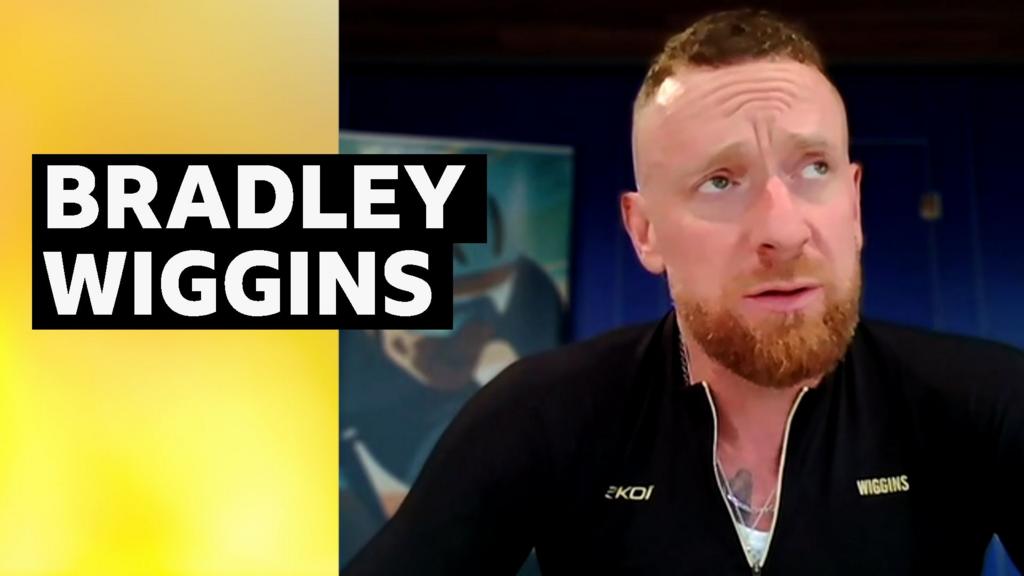This video can not be played Former cycling star Bradley Wiggins, who recentlymade headlines after speaking about his post-career cocaine addiction,tells BBC Radio 5 Live Breakfast's Rick Edwards he "couldn't care less what the newspapers want to sensationalise". He said after his career ended, he "suddenly had to deal with things that people normally take a lot of time to deal with", referring to his father's death and sexual abuse he experienced as a teenager. Help and support for any of the issues raised in this interview can be found at bbc.co.uk/actionline. This clip is originally from 5 Live Breakfast on Friday 6 June 2025.
I couldn't care less what the newspapers sensationalise - Wiggins
TruthLens AI Suggested Headline:
"Bradley Wiggins Discusses Post-Career Challenges and Addiction on BBC Radio"
TruthLens AI Summary
Former cycling champion Bradley Wiggins has recently opened up about his struggles with addiction and personal trauma following his retirement from professional cycling. In a candid interview on BBC Radio 5 Live Breakfast, Wiggins addressed the sensationalism surrounding his experiences, stating that he 'couldn't care less what the newspapers want to sensationalise.' He emphasized the profound challenges he faced after leaving the sport, particularly highlighting the emotional toll of dealing with his father's death and the sexual abuse he endured during his teenage years. These revelations shed light on the often-overlooked mental health issues that athletes may confront once they step away from the competitive arena.
Wiggins's comments reflect a broader conversation about the pressures faced by athletes and the importance of addressing mental health in sports. He pointed out that many individuals take years to process such significant life events, suggesting that the abrupt transition from professional sports to civilian life can be jarring. The interview served not only as a personal reflection for Wiggins but also as a call for greater awareness and support for those struggling with similar issues. Listeners are encouraged to seek help for any of the topics discussed, with resources available through BBC's Action Line, reinforcing the need for dialogue around mental health and addiction recovery in the wake of personal crises.
TruthLens AI Analysis
The article revolves around Bradley Wiggins, a former cycling champion, who candidly discusses his struggles with cocaine addiction after retirement and the personal issues that have affected him profoundly, such as the death of his father and experiences of sexual abuse. His declaration of indifference toward media sensationalism highlights a desire to focus on his personal journey rather than the public narrative.
Media Sensationalism and Public Perception
Wiggins’ comments suggest a broader conversation about how the media often sensationalizes personal struggles for clicks and views. By stating he "couldn't care less" about what newspapers say, he positions himself as someone who prioritizes authenticity over public perception. This statement could resonate with audiences who are weary of media exaggerations, fostering a sense of solidarity with those who have experienced similar struggles.
Potential Motives Behind the Publication
The motivation for this article may stem from a desire to shift the narrative surrounding addiction, mental health, and personal trauma. By sharing his story, Wiggins not only personalizes these issues but also advocates for broader awareness and understanding. This could encourage discussions around the stigma associated with addiction and trauma, potentially prompting a more supportive community response.
Concealment of Other Issues?
While the focus is primarily on Wiggins’ personal struggles, it raises the question of whether there are underlying societal issues related to mental health and substance abuse that the article might indirectly address. It could serve to distract from systemic problems in society regarding mental health support and the resources available for those in similar situations.
Manipulative Aspects and Trustworthiness
There is a manipulation ratio present due to the way Wiggins’ experiences are framed in relation to media sensationalism. The emotional weight of his story can evoke sympathy and support, but it can also lead to misinterpretations of the media's role in such narratives. The article is trustworthy in the sense that it presents Wiggins’ own words and experiences, fostering an important dialogue about addiction and mental health.
Societal Impact and Community Support
This article may garner support from communities advocating for mental health awareness and addiction recovery. It is likely to resonate more with those who have faced similar challenges, including survivors of abuse and individuals in recovery. The conversation surrounding mental health continues to grow, suggesting that such narratives can foster community solidarity and support.
Economic and Political Implications
While the article primarily focuses on personal struggles, it indirectly highlights the need for better mental health resources and support systems, which could have economic implications. The healthcare sector might see increased demand for services addressing addiction and mental health, impacting funding and policy discussions.
Global Relevance and AI Involvement
The themes discussed in this article are universally relevant, as addiction and mental health issues affect many globally. While the content appears to be authentically derived from Wiggins’ experiences, there is a possibility that AI-assisted tools were used in the editing process to refine the narrative. However, any AI involvement seems minimal, focusing more on enhancing clarity rather than altering the core message.
This analysis suggests that the article is a legitimate exploration of personal struggles with addiction and trauma, while also tapping into larger societal conversations. Its focus on authenticity over sensationalism may encourage more open discussions in society regarding these critical issues.
